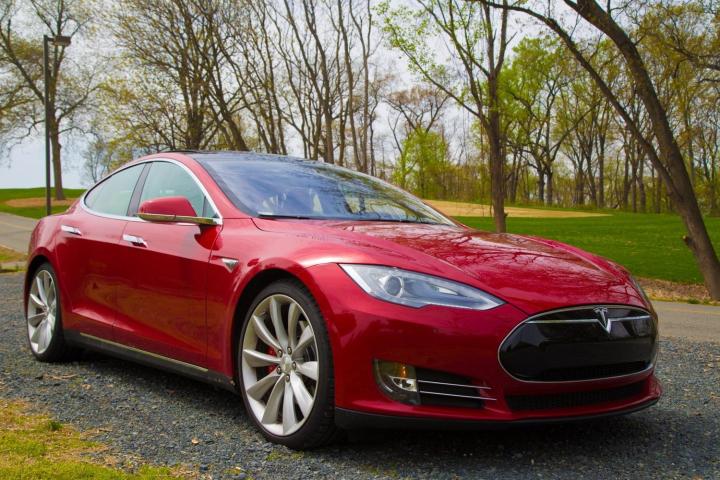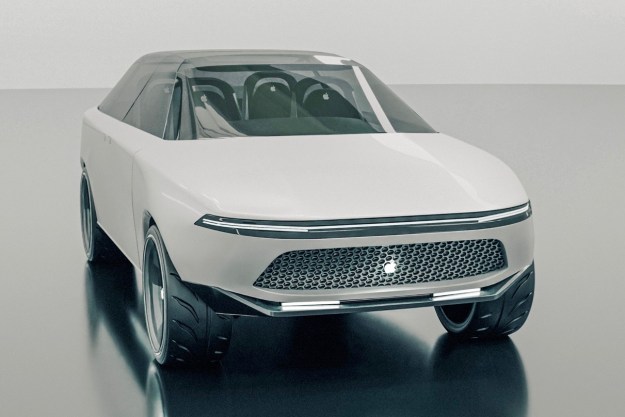
The magazine called the Model S the best car it’s tested since 2007, and named it Best Overall vehicle for 2014.
In its latest update on the car – which has just over 15,000 miles on the odometer – staffers report the Model S has “more than its share of problems.”
Those problems include door handles that wouldn’t emerge from the bodywork. The handles normally sit flush to the door to improve aerodynamics, and motor out when needed.
This performance anxiety was cured by an over-the-air software update, which Tesla has used to fix numerous glitches since the Model S has been on sale.
Then, at around 12,00 miles, the car’s central touch screen went blank, a major issue because it controls virtually all vehicle functions, including opening the charge port. This was fixed with a “hard reset” during the car’s annual service.
While it was in the shop, technicians addressed a creaking sound coming from the passenger-side roof pillar area, and replaced the entire third row of seats, just because one buckle was broken.
RELATED: Tesla Model S goes without Google navigation in China
After that, drivers found that the front trunk lid wouldn’t respond to the virtual “button” that opens it. Around the same time, an adapter that allows the Model S to plug into non-Tesla charging stations fell apart.
As warranty claims, both issues were resolved free of charge (no pun intended).
While the love affair appears to be over, Consumer Reports emphasized that its staffers’ experiences with the Model S are anecdotal, and won’t affect the magazine’s overall reliability rating for the car. That’s determined by a survey of owners.
Many of those owners may be having an easier time. Unlike many other carmakers, Tesla doesn’t wait until a new model year to implement significant changes. It’s been steadily addressing problems found with early production cars, like Consumer Reports’ 2012 model.
Still, if an owner experienced this many problems, or the drive-unit issues reported by Edmunds, it’s hard to imagine them sticking with Tesla.
All cars develop problems over time, and several carmakers have even managed to survive despite legendary reputations for unreliability.
However, as a new carmaker selling a new type of car, Tesla can’t afford a negative reputation. Its cars’ reliability will be under the glare of media scrutiny for some time.
Editors' Recommendations
- Tesla to begin production on new, more affordable models
- New Model 3 ‘takes out the baby fat,’ Tesla designer says in new video
- Tesla Model S vs. Model X: Which is right for you?
- Tesla launches more affordable Model S and Model X, but there’s a catch
- Tesla recalls 363,000 of its vehicles over safety issue


